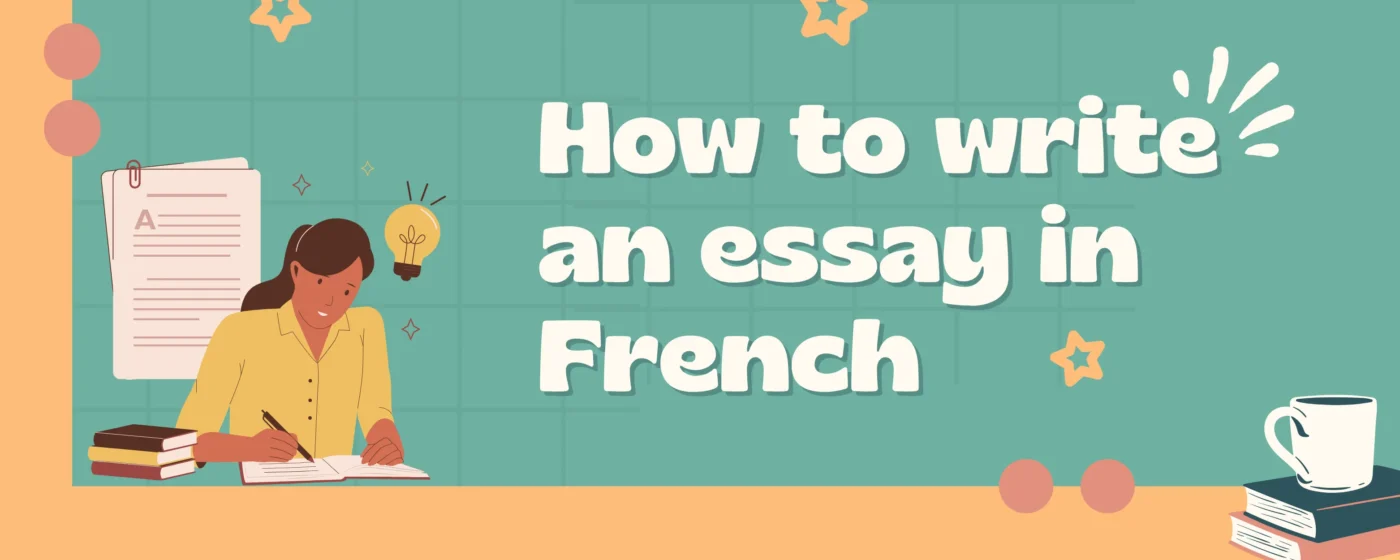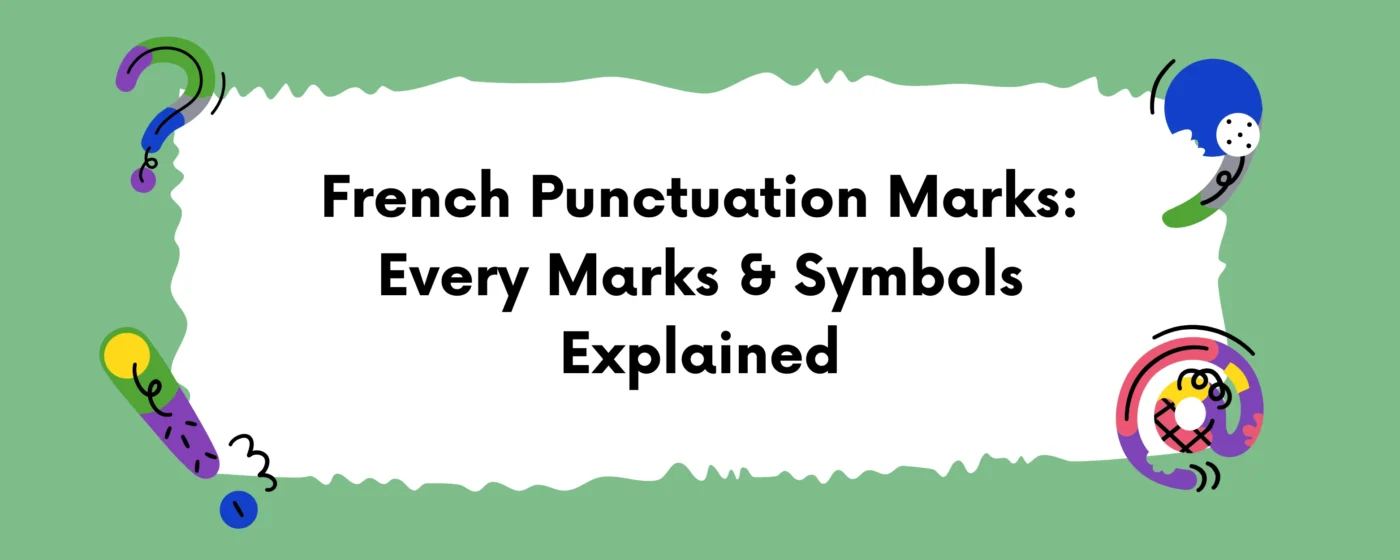How to Write an Essay in French?

Writing in French seems like a challenge, whether you’re a beginner or at a significantly advanced level. From tricky grammar to nuanced vocabulary, the list is quite scary! Yet, the reward of expressing yourself in such a beautiful language can be spectacular. Mastering essay writing not only refines your fluency but also deepens your comprehension of the language. Writing an essay in French fluently will also transform how you interact with the language. Still a bit confused and scared about structuring that first essay in French? Worry not, this article will guide you through conquering these hurdles, offering strategies to make French essay writing not just easier, but genuinely enjoyable! Let’s begin.
Key Takeaways
- Just so you know, the French essay follows a structure that includes Introduction, Development, Conclusion, etc.
- The intro presents the topics, key terms, and central argument, and the development develops your argument in several paragraphs, including topic sentences and examples.
- The Premièrement, En outre, Cependant, for logical flow, cohesion, etc, are the different types of connectors for use in a French essay.
- There are essential phrases and transition words to improve clarity; also, proofread carefully for grammar, spelling, and sentence structure.
- The conclusion summaries important points, reaffirms the thesis and provides important thoughts or implications for your understanding.
Understanding the French Essay Structure
The classic French essay follows a strict, logical structure: Introduction, Développement, and Conclusion.
The Introduction (L’Introduction) introduces the subject, defines key terms, and presents your core argument (la problématique). It’s your hook and roadmap. Don’t forget to use important connectors like D’emblée… (From the outset…), Pour commencer… (To begin…) to kick-start your essay!
The Development (Le Développement) is your essay’s heart and soul: typically divided into two or three major parts. Each part explores a distinct aspect of your argument, beginning with a clear topic sentence and presenting supporting evidence and analysis in well-structured paragraphs. Logical flow is crucial. This means that your ideas must progress coherently, with each point leading naturally to the next. Remember to use Premièrement… (Firstly…), En outre… (Furthermore…), Cependant… (However…), Par conséquent… (Consequently…) to build your argument in a logical and sequenced manner!
Finally, the Conclusion (La Conclusion) collates and synthesizes your arguments, reaffirms your thesis in a fresh way, and often offers an opening thought or broader implication. Essential connectors like En somme… (In summary…), Pour conclure… (To conclude…) are crucial for your thought process.
ChatGPT said:
Improving your French writing becomes easier with the right guidance. Check out 10 Simple Strategies to Improve French Writing Skills in this blog for practical tips.
Mastering French Essay Vocabulary
Elevating your French essay will require mastering essential academic phrases and connectors to transition seamlessly between different arguments and paragraphs.
| Category | French Expression | English Meaning |
|---|---|---|
| 1. Introducing Ideas | Tout d’abord | First of all |
| En premier lieu | In the first place | |
| Il convient de noter que | It’s worth noting that | |
| Commençons par | Let’s start with | |
| D’un côté… | On one hand… | |
| 2. Adding / Expanding | De plus / En outre | Moreover |
| Par ailleurs | Besides / Furthermore | |
| Non seulement… mais aussi… | Not only… but also… | |
| Qui plus est | What’s more | |
| En effet | Indeed | |
| 3. Giving Opinions | À mon avis | In my opinion |
| Je pense que / Je crois que | I think that | |
| Selon moi | According to me | |
| Il me semble que | It seems to me that | |
| D’après moi | From my point of view | |
| 4. Arguing / Contrasting | Cependant | However |
| Pourtant / Toutefois | Nevertheless / Yet | |
| Néanmoins | Nonetheless | |
| Bien que (+ subj.) | Although | |
| Tandis que / Alors que | While / Whereas | |
| 5. Giving Examples | Par exemple | For example |
| Notamment | Notably | |
| C’est-à-dire | That is to say | |
| Comme le montre… | As shown by… | |
| On peut citer… | One can mention… | |
| 6. Cause and Effect | Parce que / Car | Because |
| Puisque | Since (as a cause) | |
| En raison de | Due to | |
| Donc / Alors | So / Therefore | |
| Par conséquent | As a consequence | |
| 7. Comparing Ideas | De la même manière | In the same way |
| De même | Likewise | |
| Contrairement à | Contrary to | |
| En comparaison avec | In comparison with | |
| Tandis que | While | |
| 8. Concluding | En conclusion | In conclusion |
| Pour conclure | To conclude | |
| En somme | All in all | |
| Finalement | Finally | |
| Tout bien considéré | All things considered |
Common French Essay Types and Their Approaches
French essays are commonly of 3 different types, each with its own goal:
The Dissertation is an argumentative essay, common in the fields of philosophy or literature. Here, you explore a question by presenting a structured argument with a clear thesis, counter-arguments, and synthesis. Think of it as a debate on paper, where you defend your point of view with evidence!
The Commentaire de texte is a text analysis. Here, your job is to deeply analyse a given literary or philosophical text. You are not supposed to argue against it, but rather explain how it works, including its themes, style, and literary devices. Think of it as dissecting the text to understand its inner workings.
Lastly, the Rédaction is a more general composition. This can be anything, ranging from a personal narrative to a descriptive piece, or even a summary. This is often a less rigid essay than the other two, thereby allowing for more creative freedom. However, it still requires clear organisation.
Writing a Strong Introduction and Thesis
A good introduction grabs the reader’s attention and sets up your essay. Start broadly, with a general observation. This will lead to your problem statement (la problématique). This forms the central question your essay will tackle. It’s not just a topic, but a debatable issue. Here are some tips for writing an effective introduction: keep it concise, engaging, and make sure it clearly presents the main issue.
Then, move on to presenting your thesis statement (la thèse). This is your direct answer to the problem statement, which you’ll prove throughout the essay. It needs to be clear, concise, and arguable.
Example
À l’ère numérique, l’influence des réseaux sociaux sur l’opinion publique est un sujet de débat intense. Tandis que beaucoup célèbrent leur rôle dans la démocratisation de l’information, d’autres s’inquiètent de la désinformation. Dans quelle mesure les médias sociaux façonnent-ils la pensée collective aujourd’hui? Cet essai soutiendra que, malgré leur potentiel d’engagement, les réseaux sociaux contribuent davantage à la fragmentation qu’à l’unification de l’opinion publique.
(In the digital age, the influence of social media on public opinion is a subject of intense debate. While many celebrate its role in democratizing information, others worry about misinformation. To what extent does social media shape collective thought today? This essay will argue that, despite their potential for engagement, social media contributes more to the fragmentation than to the unification of public opinion.) A strong introduction should also delve into the background of the topic to provide context for the reader.
Developing Clear and Coherent Arguments
Structuring body paragraphs logically is essential for formulating an organised French essay. Each paragraph should focus on a major idea that supports your overall thesis.
Begin with a clear topic sentence that introduces the argument for that paragraph. Following the topic sentence, provide strong examples to support your topic argument. This could include quotes from texts, historical facts or even statistics – basically anything that supports and supplements your point! Remember to not just present evidence, but thoroughly explain how the examples or statistics prove your point.
Essentially, use transition words and phrases between paragraphs and within them to ensure coherence. Words like tout d’abord (first of all), de plus (furthermore), cependant (however), par conséquent (consequently), and en revanche (on the other hand) guide the reader smoothly from one idea to the next. Using such transition connectors will help create a seamless flow, making your arguments easy to follow and more convincing.
Perfecting the Conclusion
Drafting a strong conclusion involves summarising your key arguments without merely repeating them. Here, you must rephrase your main points in a new light, showing how they support your overall thesis. This reinforces your argument. After summarising, add a final thought. This could be a reflection on the implications of your findings, a new question raised by your analysis, or a relevant opening to future considerations. This will leave the reader with a lasting impression.
Example:
En définitive, il est clair que la transformation numérique a profondément redéfini nos modes de communication. Ainsi, malgré les défis qu’elle pose, elle offre des opportunités sans précédent pour l’échange d’idées. Il est donc impératif de cultiver une pensée critique face à ces évolutions constantes.
(Ultimately, it is clear that digital transformation has profoundly redefined our modes of communication. Thus, despite the challenges it poses, it offers unprecedented opportunities for the exchange of ideas. It is therefore imperative to cultivate critical thinking in the face of these constant evolutions.)
Understanding the differences between Spoken vs Written French is essential for learners aiming to improve communication skills and adapt naturally in everyday conversations as well as formal contexts.
Editing and Proofreading Like a Pro
Proofreading is an essential skill required for polishing your essay.
Start by checking grammar and spelling. Pay close attention to verb conjugations and common confusions like a/à or on/ont. Sentence structure is also equally important, ensuring your sentences are clear, concise, and flow logically. Avoid overly long phrases.
Make use of online tools to assist you. Grammarly can help you catch basic errors, while BonPatron, specifically designed for French, can offer you feedback on grammar, spelling, and other common errors.
Beyond tools, don’t forget to practice self-review techniques. Reading your essay aloud will help you catch awkward phrases, repetitive words, or grammatical errors. Also, a fresh pair of eyes can be invaluable, so ask a peer to review your work.
Using interactive tools and games can make the process of editing and proofreading more fun and engaging. These resources can also help you learn French more effectively while improving your writing.
Practice and Improve with Expert Guidance
Mastering French essay writing, like any skill, depends on consistent practice. Each essay you write, each paragraph you structure, will strengthen your command of the language and sharpen your analytical abilities. Don’t be discouraged by initial difficulties! Every attempt is a step towards fluency and precision.
For those seeking structured guidance La Forêt French Class can prove to be an invaluable resource. Their expertly designed lessons and targeted exercises can significantly enhance your writing proficiency.
Frequently Asked Questions
1. What’s the biggest difference in writing a French essay from those in English?
Ans: French essays require a very structured, logical progression of ideas with clear transitions.
2. What is the most common mistake for beginners while writing an essay in French?
Ans: Forgetting noun-adjective agreement and messing up the verb conjugations are some common mistakes made by beginners during the early parts of their essay writing journeys.




